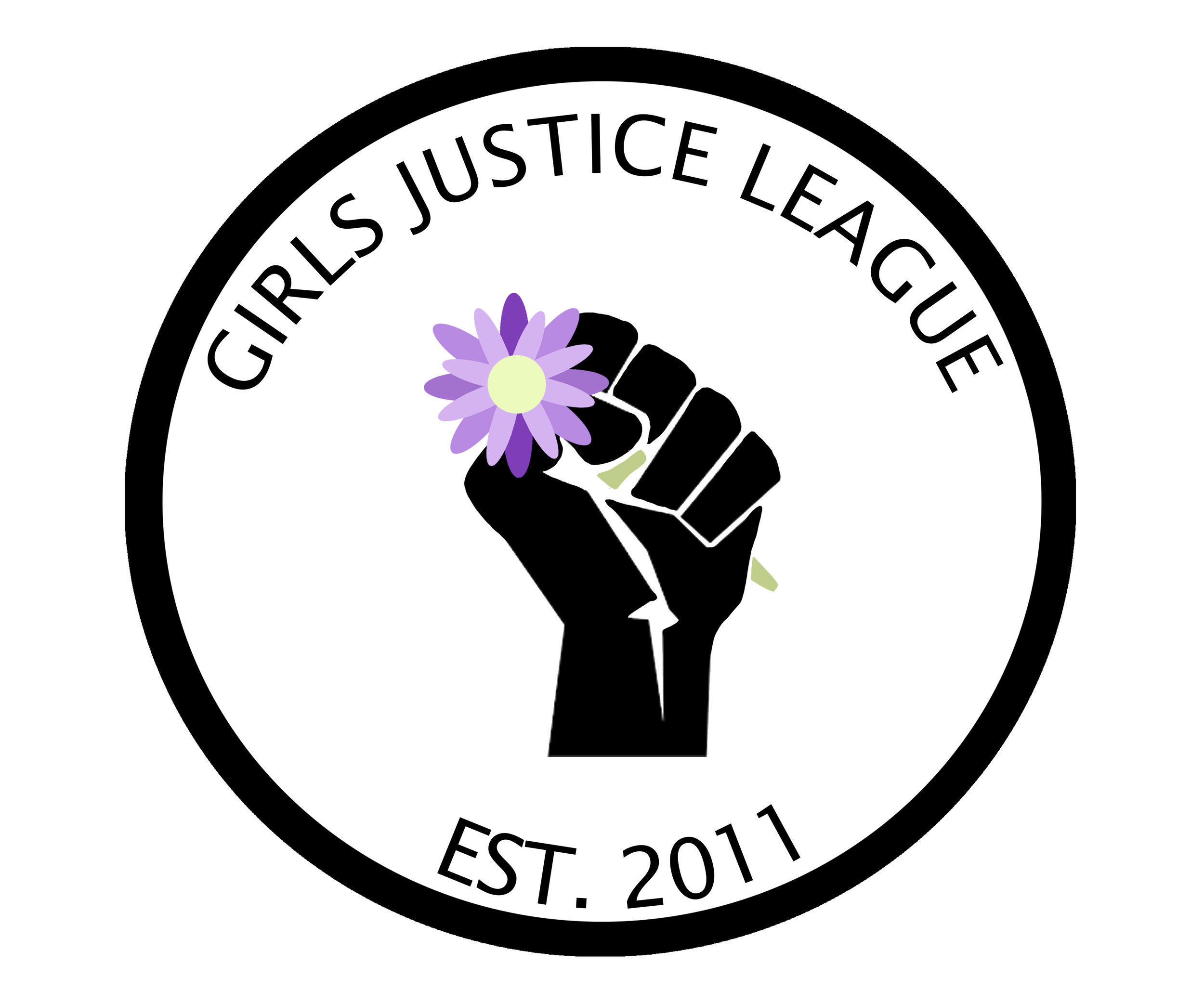An Overview
Over the past three years, The Project on the Status of Girls and Young Women has developed into a firmly girl centric participatory community based research effort. Largely, this has been the result of continued commitment of a broad-based coalition of local organizations, which initially gathered together in November of 2012 to explore the current standing of girls and young women, aged 12-24 in Philadelphia.
As a result of that first conversation, the Coalition for the Project on the Status of Girls and Young Women was launched. Over the past two years the Coalition has grown from a handful of interested and committed individuals and organizations to twenty-three adult allies taking on various roles from research formulation to public education to supporting girls and young women who are growing in their capacity as Project partners.
Throughout the later part of 2013 and into 2014, the Girls Justice League created a Girls Justice Institute as a forum for girls to be vital members of the Project. The Institute, offered monthly on Saturdays during the school year and as a week long intensive during the summer is designed to build the girls’ capacity as researchers, documentarians, advocates, and co-facilitators of community conversations. Concurrently the girls have helped shape the research design and illuminated those issues most important to them.
The Status Project is focused on four specific research areas – Health and Wellbeing, Justice, Economic Security and Education – all through the lens of gender roles and gender role expectations. Each of these areas is led by a University – Community collaboration and roll out sequentially. The first report, focusing on girls and their reproductive health, represents a partnership between Drexel University, College of Medicine, Women’s Health Education Program, the University of the Sciences of Philadelphia and, research fellows from the GJL Girls Justice Institute. Justice Involvement, which began in early 2015, is the second area of focus and investigates how gender roles and expectations lead to the transition of girls and young women from the juvenile system of justice to adult corrections. The partners on the Justice Involved project are the Philadelphia Prison System, Saint Joseph’s University and, Temple University. Educational Access and Push Out begins Fall of 2016 and the initial partner for this project is the University of Pennsylvania. The final topic, Economic Security, will come online within the next two years.
Each topical team is using a multi level approach based on Girl Participatory Action Research which has includes female identified individuals as partners from the identification of the research question through the collection, analysis and dissemination of findings. The design explicitly calls for each team to be made up of two academic partners/faculty members, a senior fellow (graduate student), additional interested post secondary students, and fellows from the Girls Justice Institute. Where available, public secondary data is incorporated into the design in order to determine strengths, weaknesses and gaps that exist in Philadelphia city data. Focus groups and a participant survey deliver the qualitative perspective of girls and young women on each topic. Ultimately girls determine the most salient findings and create an advocacy agenda for GJL public actions and discourse.
In keeping with the City Council Resolution (May 2013), findings from the Project will be used as the centerpiece of public hearings inviting community stakeholders to critically reflect on the implications for creating stronger programs, gender responsive policies, and more targeted funding supporting girls’ and young women’s successful development and ultimate transition into adulthood.
The Need
When in dialogue with girls, young women, and their allies, there is an urgent and clearly stated interest in creating partnerships with girls and young women about their life experiences, needs, and desires for their futures in order to create quality programs, intentional policy and, targeted funding.
Current sources of data and knowledge about girls, young women and those who identify as female are fragmented. Data is not centralized and it is difficult to find neighborhood level data or data disaggregated by age, socio-economic status and too often, gender.
In order to create program, policy and funding priorities that address the needs of girls and young women, the City needs solution-focused data collected, analyzed and presented in ways that are meaningful and appropriate to girls and young women as they see and understand themselves.
The Benefits to the City of Philadelphia
Centralized, reliable baseline data on the socioeconomic status, educational opportunity, crime and personal safety, and health and well-being of Philadelphia’s girls and young women;
The basis for coordinated, data driven programs and funding priorities that support girls and young women ages 24 and below;
A platform for advocacy and community dialogue, informed by concrete data and led by girls and young women, on issues affecting girls’ and young women’s futures;
A catalyst for creating a policy agenda to better hear and support the needs and interests of girls and young women;
Programs, organizations and systems have access to appropriate data in order to plan, develop budgets, establish robust yet achievable goals and, promote solutions to public and private funding sources;
Opportunities for collaboration leading to coordination around outcomes for girls and young women that is inclusive of their experiences and views versus fragmentation and duplication of services.
Funding support for the Project on the Status of Girls and Young Women in Philadelphia comes in part from Women’s Way, the Douty Foundation, and the Valentine Foundation.

